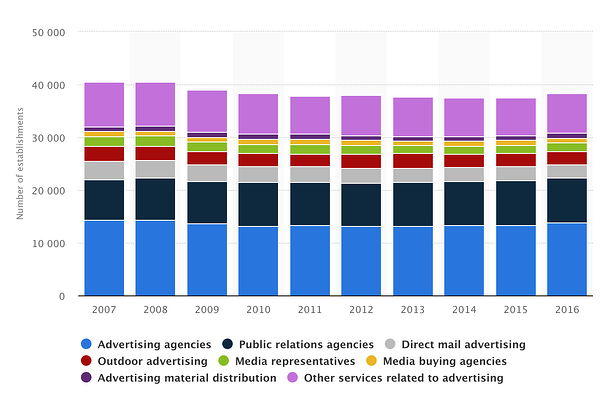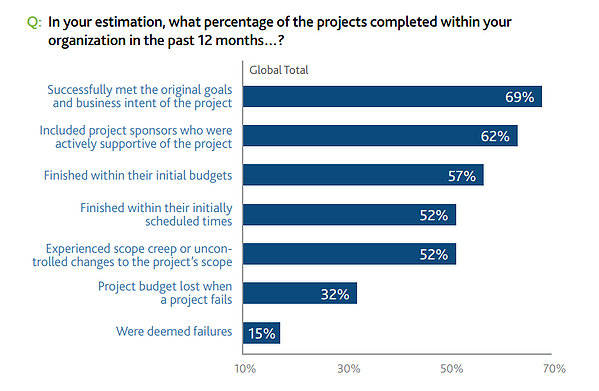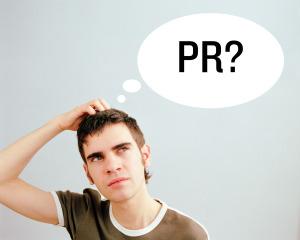Every agency makes some mistakes. By spotting these mistakes early, you can avoid them easily. This article looks at some of the biggest agency mistakes and how to fix them.
Running an agency is tough work. Between managing projects, hiring talent, and winning new clients, it’s natural to make mistakes.
When you dig through these mistakes, however, you’ll find some patterns. Agencies across verticals and markets tend to make the same mistakes, over and over again. The pain points for agencies are surprisingly uniform – hiring, project management, new business, etc.
The right way to deal with this problem is to:
- Recognize these mistakes early on
- Take measures to remedy them
I’ll help you spot the most common agency mistakes in this guide. Use this to audit your agency’s operations and discover what you’re doing wrong.
Mistake #1: Not Differentiating Your Agency
Positioning. Branding. Market specialization.
Whatever you call it, it serves the same purpose: to help you differentiate your agency.
Differentiation is the bedrock of agency marketing. You’re competing in a business where your core commodity – expertise – is the same across all your competitors (at least on paper). If you and 1,000 other agencies all offer “full-service marketing”, how can a client really tell who is good and who isn’t?
The agency business is also one of the most accessible in the world. It doesn’t take much capital to start an agency – just some skills and a few months of runway. Which is why there are tens of thousands of agencies in the US alone.

This immense competition makes it crucial to differentiate your agency. Ideally, you’ll want to adopt all the tactics at your disposal:
- Positioning, i.e. who you are and what you believe in
- Branding, i.e. how you represent yourself
- Specialization, i.e. what skills, industry or market niche you specialize in
Mistake #2: Not Focusing on the Numbers
It’s astonishing how many agencies operate without knowing their mission-critical numbers such as AGI, AGI:FTE, etc.
This can partly be attributed to the nature of the agency business itself. Agencies, especially creative agencies, tend to attract “big picture” people. Finances, accounting, metrics – these are often ignored because they don’t align with the agency’s culture of creativity.
While this is great for the agency’s output, it’s a terrible approach for building a sustainable business.
Do you know who your agency’s most profitable (not largest) clients and project-types are? Do you know your utilization rate for every resource? How much money do you bring in for every full-time employee?
If you can’t answer these questions off the top of your head, you aren’t doing a good enough job of tracking your key numbers.
Mistake #3: Not Focusing on Avoiding Scope Creep
Not all “failed” projects look the same. A project can be deemed a failure and still be profitable. Another can fail and still leave a happy client behind.
But when projects fail because of scope creep, it directly eats into your profit margin.
Scope creep is the perennial threat to all agencies. In fact, 52% of all projects in PMI’s survey experienced it in some form.

Scope creep can derail even financially astute agencies. When two features balloon into five without an equivalent increase in the budget, you’ll have to eat into your margins just to finish the project.
The result is a project that not only fails to meet its original mandate but also fails to deliver any profits.
While avoiding scope creep completely isn’t necessarily possible, you can mitigate the damage.
Mistake #4: Not Building a Scalable System to Win New Business
Saying that agencies need new business is akin to saying that fish need water; it’s blatantly obvious.
Yet winning new business is seldom the topmost concern for agencies. And even when it is, agencies approach it in a haphazard manner.
Audit your new business strategy by asking yourself:
- How did you get your last five clients?
- How long does it take you on average to land a new client?
- What is the average time gap between landing two new clients?
- Do you have a pipeline of leads and contacts?
- Is there a dedicated person to pursue new business opportunities? If not, who handles new business?
- What is your churn rate?
If you’re like most agencies, you’ll find that most of your clients come through unscalable sources such as word of mouth. In one HubSpot survey, 90% of agencies said that they relied on such referrals to win new business.
While the quality of leads through word of mouth referrals is undoubtedly excellent, it is not a scalable source of new business. Clients might refer you to their network, or they might not; there is no real way to guarantee it.
The solution is to invest in more scalable lead sources. Think content marketing, PPC, conference sponsorships, advertising, etc. Anything that you can control and scale when necessary. A PPC campaign to capture leads can keep growing as long as your budget allows it.
The same can’t be said of word-of-mouth referrals.
Mistake #5: Not Investing in Project Management
How does your agency manage its projects?
For most agencies, the answer would be a clumsy mix of spreadsheets, collaboration, and task management tools.
The result of this approach is usually the same: poor communication, haphazard planning, and constantly derailing projects.
Project management might not be the most exciting part of running an agency, but it is absolutely crucial to your business. Your profit margin, ability to win new business, and reputation all depend on your ability to deliver projects on-time and under-budget.
Some of the most common project management mistakes I see agencies make are:
- Not following a proven project management approach
- Relying on ad-hoc instead of purpose-driven tools
- Working in silos instead of promoting cross-department and cross-team collaboration
You’ll find that once you fix these mistakes, your projects run almost on autopilot. Communication problems – so common in large projects – tend to go away. You can grow and bring in new projects without worrying about how they’ll be managed – you have proven processes to handle them.
Mistake #6: Not Optimizing Your Agency Management Practices
If ignoring project management is a common agency mistake, you’ll be surprised to see what they get up to when it comes to managing the agency itself.
If you’re guilty of this, these symptoms will probably sound familiar to you:
- Meetings that take forever
- Siloed organizational structure
- Poor clarity on roles; overlapping responsibilities
- Little to no collaboration across key departments – sales, operations, and finance
- Lack of cohesive agency vision and leadership
- Lack of a knowledge bank; information is hoarded instead of being freely shared
Agency management problems are harder to fix than project management mistakes. You can’t just adopt a PM methodology and call it a day. You’ll have to put in real effort into cultivating a culture of leadership, ironing out operational kinks, and crafting a vision.
One way to drastically improve agency management quickly is to adopt an agency management software like Workamajig.
Workamajig brings your entire agency under a single dashboard. Finance gets numbers straight from sales, and sales can learn from project teams to improve deal flow.
This enhanced clarity is a powerful remedy for common agency management mistakes.
Mistake #7: Not Cultivating an Agency Culture
For a business that relies entirely on the quality of its talent, it’s always surprising how little agencies focus on culture.
Culture is the glue that binds businesses together. It differentiates your agency, not only to clients but also to your employees. An agency with a well-defined culture finds it easier to attract and retain employees.
How can you tell if you’re making this agency mistake? Try asking these questions:
- Do you have clearly defined values and beliefs?
- Do your employees have a “shared vocabulary” – inside jokes, terms only team members would understand, business-focused monikers (such as “Googlers” for Google employees)?
- Do you have a coherent story about your business? Something that would get prospective employees excited to work with you?

Facebook offers new employees its famous “Little Red Book” to help them understand Facebook’s values and beliefs. (Source)
Agencies often ignore culture since it doesn’t have an immediate impact on your operations o profit margins. But you’ll find that the more you invest in culture, the more it becomes a self-fulfilling prophecy. An agency that starts identifying itself as “creative” will attract creative employees. Which, in turn, will improve the agency’s creative output.
More than clients, agency culture is vital for attracting top talent. The best employees can’t always be lured by money alone. You have to also give them a sense of “belonging” and opportunities to grow.
Mistake #8: Not Diversifying Enough (Or Diversifying Too Much)
In a season 4 episode of Mad Men, Don Draper’s agency, SCDP, is in crisis. The agency just lost a big account – Lucky Strike cigarettes – and layoffs are imminent. The firm has so little cash that the partners have to pony up $ 50,000-$ 100,000 in cash just so that the agency can survive for the next six months.
All of this happened for a single reason: Lucky Strike accounted for 1/3rd of SCDP’s revenues.

(Image source: Giphy)
This might be a fictional TV show, but scenarios like these play out in agencies across the world every day. Far too often, agencies rely on a handful of accounts for the bulk of their money. And when these accounts walk out for any number of reasons, the agency collapses.
Ideally, no account should make up more than 10% of your revenue. As soon as a client crosses this threshold, you should find new clients. This will ensure that a client (or two) leaving won’t completely cripple your agency.
While income diversification is one aspect of this, another is diversifying your skillset and offerings.
This is a risky practice. Diversify your offerings too fast and you risk diluting your brand and positioning. Don’t diversify enough and you risk being cornered in an unprofitable niche.
Ideally, you should find a balance between:
- What you can learn and sell
- What the market wants in the near future
For instance, your core skill might be SEO. But trends indicate that the market will increasingly demand content marketing in the future. Thus, your focus should be diversifying your offerings to include parts of content marketing that overlap with SEO, such as content promotion.
Over to You
All agencies make mistakes, including the successful ones. The key is to spot these mistakes early and take steps to remedy them. As you saw above, most agency mistakes tend to fall within a handful of categories.
Learn to avoid them and you’ll be halfway to building a prosperous, successful agency.
Business & Finance Articles on Business 2 Community
(33)





